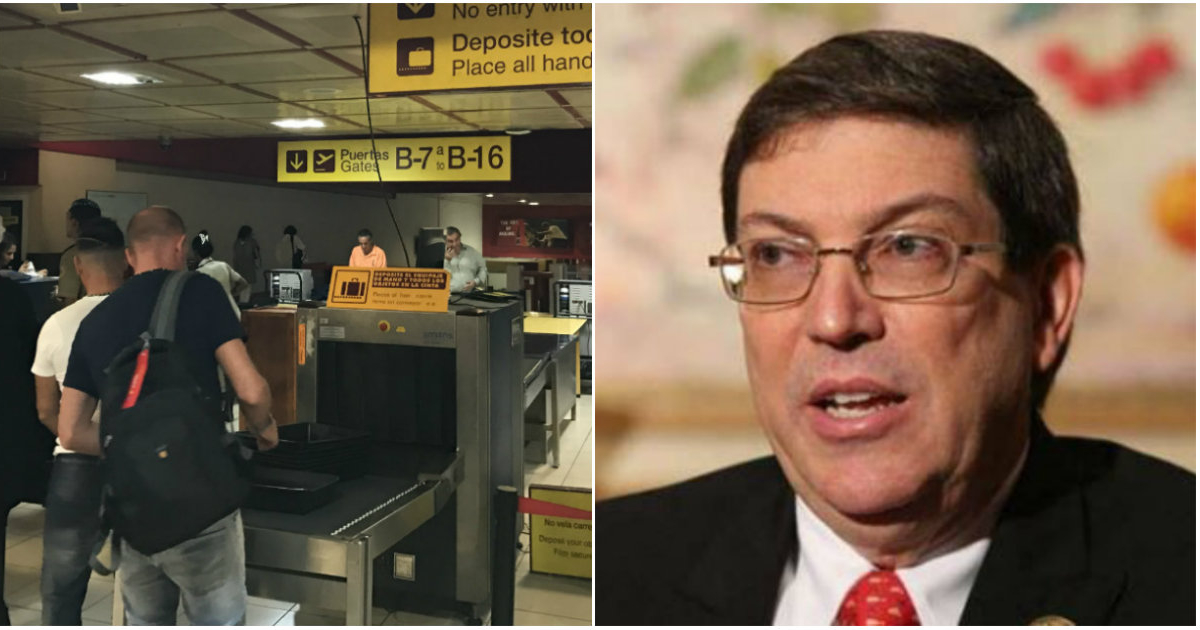
The statements of the Cuban Foreign Minister, Bruno Rodriguez, when asked about the Government's "justification" for preventing a group of Cubans from traveling abroad, has aroused indignation among the "regulated."
Several journalists banned from traveling abroad this Thursday described the Foreign Minister's words as shameful during the interview with Associated Press. Rodríguez said that he did not know, that it had to be analyzed "case by case," and added that Cuban immigration laws are "very similar to those of any country."
The independent journalist, Manuel Alejandro León, he said this Thursday - in statements for Radio Television Martí- that the laws that exist do not apply in their cases, because they are not "subject to criminal proceedings," much less are they "officials."
In the opinion of Henry Constantin, director of the Camagüey magazine Cuba Time, Bruno Rodríguez chose "to lie to avoid recognizing the crimes of the government he represents."
Boris González Arenas, for his part, commented that his case is known at the highest levels of the Government, and that he does not understand how they can "say something like that and remain so calm."
Alejandro Tur Valladares concluded that this is the typical "distortion of reality" by state officials.
For the journalist of Sancti Spíritus, Aymara Peña González, Rodríguez's response shows the "complicity" of the leaders with these violations. "I think he is blatantly lying because we have taken actions within the legal framework to put pressure on the government to lift the regulations," he said.
"I don't know, we would have to know case by case", was the exact answer given by the Minister of Foreign Affairs of Cuba in an interview for The Associated Press, when asked about the "justification" for there being "regulated" people.
"Cuban immigration regulations are very similar to those of any country and any modern immigration policy, which establish a whole series of figures in law that restrict the departure of the country to people who know classified information, that is, previous positions in the government, etc., to people who are subject to judicial processes, in short there are a whole series of figures that are regulated by law,” Rodríguez added.
His response avoided the complaint of Cubans "regulated" by the Government who claim not to fit into any of the assumptions of those "immigration regulations" referred to by the chancellor.
For months now, a growing number of "regulated" people in Cuba have been insisting that There is no law in the new Cuban Constitution that protects the impediment to leaving the country as it has been applied to them.
The Patmos Institute, which documents the number of people in this situation in Cuba, has indicated that since 2012 the figure of "regulated" has existed in Cuba, but in principle that category would only be applicable to senior leaders, university students linked to strategic programs and officials related to first-order activities in the country's economic and scientific development.
However, in recent years this category has been used recurrently to block activists critical of the Cuban Government from leaving Cuba, with the aim of preventing them from making their version of political and civil life known abroad. on the Island, as the injured parties insist.
There are several reported cases in which the Cuban customs authorities They deny leaving the country without giving those affected any convincing explanation of the reasons for that determination.
There are already 194 Cubans who are officially listed as "regulated", as reported this Thursday by the Patmos Institute.
Meanwhile, Opponent Guillermo del Sol celebrates 53 days on hunger strike to demand that the Government of the Island eliminate that category, which violates human rights.
What do you think?
COMMENTFiled in: